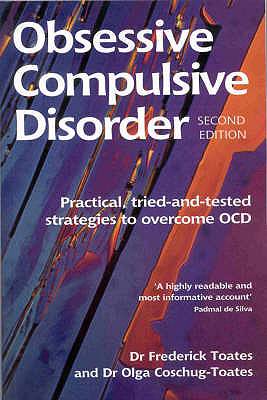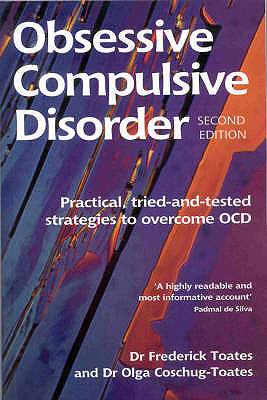
- Afhalen na 1 uur in een winkel met voorraad
- Gratis thuislevering in België vanaf € 30
- Ruim aanbod met 7 miljoen producten
- Afhalen na 1 uur in een winkel met voorraad
- Gratis thuislevering in België vanaf € 30
- Ruim aanbod met 7 miljoen producten
Zoeken
Obsessive Compulsive Disorder
Practical, Tried-And-Tested Strategies to Overcome Ocd (Revised)
Frederick Toates, Olga Coschug-Toates
€ 25,45
+ 50 punten
Omschrijving
As many as 1 in 30 adults and 1 in 100 children currently suffer from Obsessive Compulsive Disorder. It is much more common than was previously thought, with up to 2 million people being affected in the UK. Sufferers experience intrusive thoughts and anxieties resulting in compulsive behaviour that can seem bizarre to those that have no experience of the disorder. Why would someone feel compelled to touch the four walls of a room in a clockwise fashion as soon as he enters it? Why would someone look at an object 3 times with his right eye, followed by his left eye?OCD sufferers are aware that these rituals are excessive and irrational, but they cannot control their behaviour. They are plagued by intrusive thoughts that they cannot banish from their mind and are often tormented by these thoughts which they find profoundly disgusting or upsetting. The cause of OCD is still not known, but it does appear to run in families and can occur together with other disorders such as depression, anxiety disorders, eating disorders and Tourette s syndrome.Dr Frederick Toates, an experimental psychologist relates his own experiences of obsessional neurosis and his successful quest for a cure in th
Specificaties
Betrokkenen
- Auteur(s):
- Uitgeverij:
Inhoud
- Aantal bladzijden:
- 290
- Taal:
- Engels
- Reeks:
Eigenschappen
- Productcode (EAN):
- 9781859590690
- Verschijningsdatum:
- 1/09/2002
- Uitvoering:
- Paperback
- Formaat:
- Trade paperback (VS)
- Afmetingen:
- 152 mm x 229 mm
- Gewicht:
- 390 g

Alleen bij Standaard Boekhandel
+ 50 punten op je klantenkaart van Standaard Boekhandel
Beoordelingen
We publiceren alleen reviews die voldoen aan de voorwaarden voor reviews. Bekijk onze voorwaarden voor reviews.







